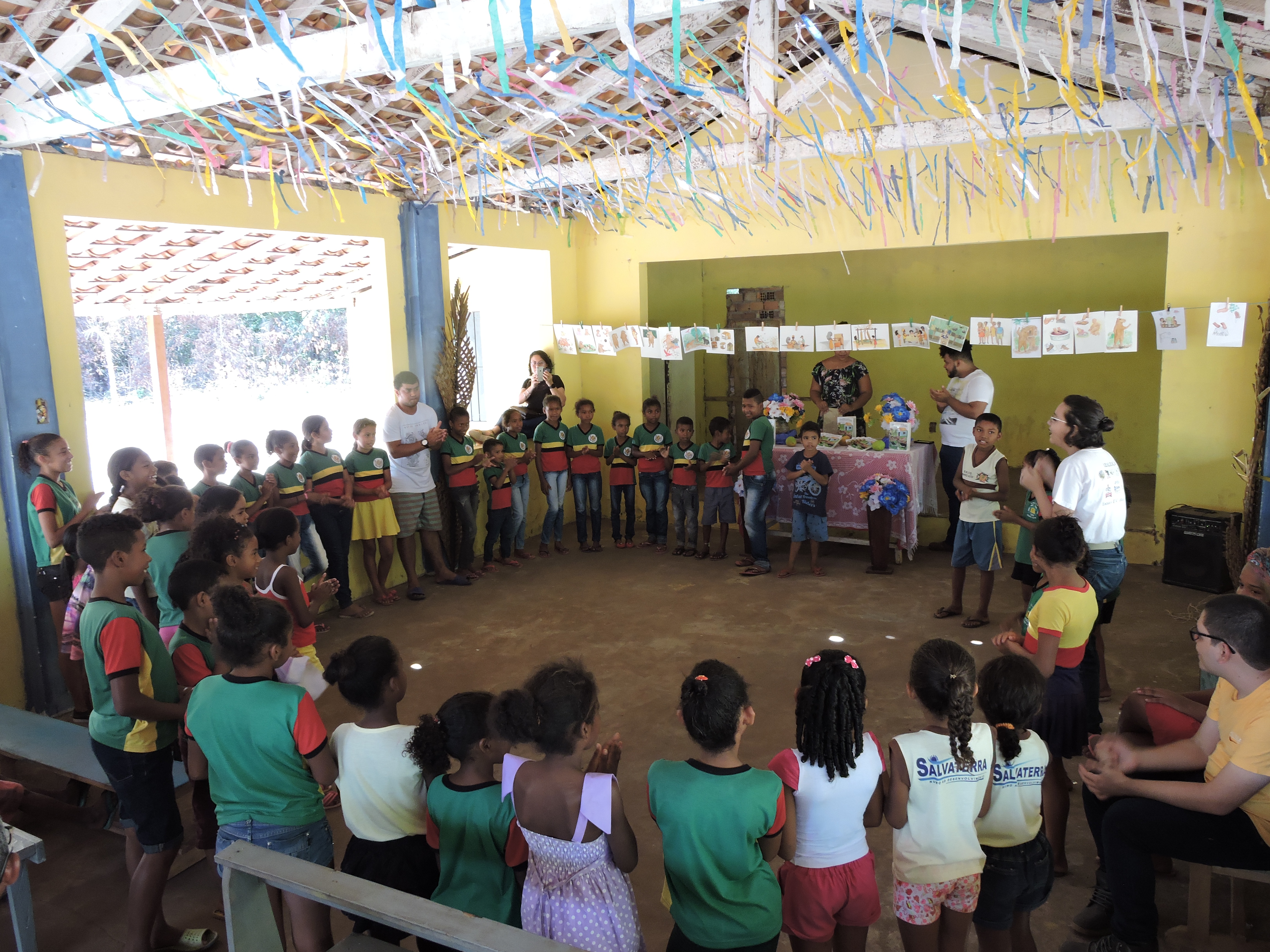Early ideas on solarpunk, anarchism and freedom of software/hardware
During 2016 to 2018, I carried out my course conclusion work in 2 Quilombos of the Marajó Archipelago (Brazil). The research theme was the right to ethnoracial education in the communities with which I worked and, in short, the work was concerned with knowing whether the culture and knowledge developed by the communities were or were not reflected in the practices of quilombola rural schools as formal institutions, despite the legislation in force in the country – which ensures the right at the discourse/speech level. Important to point out that the communities with which I worked have not yet been recognized the right to the territory (lands) they historically occupied and still occupy.
Within the territory of the communities are located 3 schools of basic level, which we call “fundamental 1” in my country. And those are multigrade class schools, which means that students from different ages and levels of schooling constitute the same grade, attend to the same classes, and learn together or from each other (as a way of managing scarce resources provided by the government policy, but also of respecting the learning dynamics in those communities, which are different in a sense of cultural reproduction). The complete research was also published as an article, that's a qualitative study and it's openly available in portuguese – ask me and I'll send a link. I am doing this introduction of the research theme because I want to talk about something that I've experienced there, but at that moment could not be covered by the research, due to my limitations as a researcher (zero knowledge on tech stuff) and, of course, as a white person in that context.
Of those 3 schools where I did fieldwork, there was only 1 computer in a single school that was almost never turned on because, according to the school administration itself: a) there was no one to (technically) maintain the equipment; b) there was no internet connection at the school where the computer was located (there's in one of the other schools, but the school administration had no equipment there and would only use it for mobile connection); c) there was not enough office supplies (I would say “material de expediente” in my language, but I could not translate it properly... hope you can understand) to justify the use of the computer (paper and ink for printing stuff, evaluations sheets, anything).
I'm raising this memory because lately I've been diving more and more into solarpunk and free software/hardware as cultural movements, but the mindsets and experiences I've had access to are still very white, very masculine, very urban, completely oriented to the lifestyle that takes place in the global north. This kind of experience does not see life beyond its own backyard and therefore repeats the modern promise of the emancipation of “humanity” (ethnocentric humanism) through technology. The difference now, at least when it comes to solarpunk, is that things are “greener” (in a cosmetic way), there is no longer talk on exploring nature, but restoring nature (although all modern technology has a material dimension, with a very unfair supply circuit and manufacturing chain).
If we want to align ourselves to collectively overcome so many injustices and “save the planet while there is still time”, we must be willing to at least try to understand the realities and the relations that communities that respect and protect nature (who are literally providing environmental services through the reproduction of their cultures) maintains with technology. Those communities are also producing technologies, otherwise they would not be able to maintain a relationship with the environment they live in. Those communities want to establish exchanges between their own and “first world” technologies. It's interesting for everyone!
I, particularly, no longer believe in institutional solutions to the dilemmas we face. This will not emerge from local or global governments (not exactly “governos”, but “governança institucional”) , even if democratic, since the very concept of democracy is quite arbitrary (although I, for example, claim it – living this nightmare of a fascist Brazil ruled by Bolsonaro). This will also not emerge from modern/urban ways of political organization, since those do not exactly fit the social forms that develop here in the global south and are also often excluding folks or backing up oppressions internally. But this could emerge collectively if we think about community-base solutions and protagonism, if we think of people as bridges and if at least some of us manage to align ourselves on some level. So, if you're a “tech person” or a solarpunk enthusiast, with effective power-knowledge to build some stuff, I have a request for you. Ask this question to yourself before anything you're doing and always: “who is my code/design/project for?”...

Last updated: 2025-01-31.
RSS | Requests to: @ betamaxglitch : cybre[.]space (matrix.org)